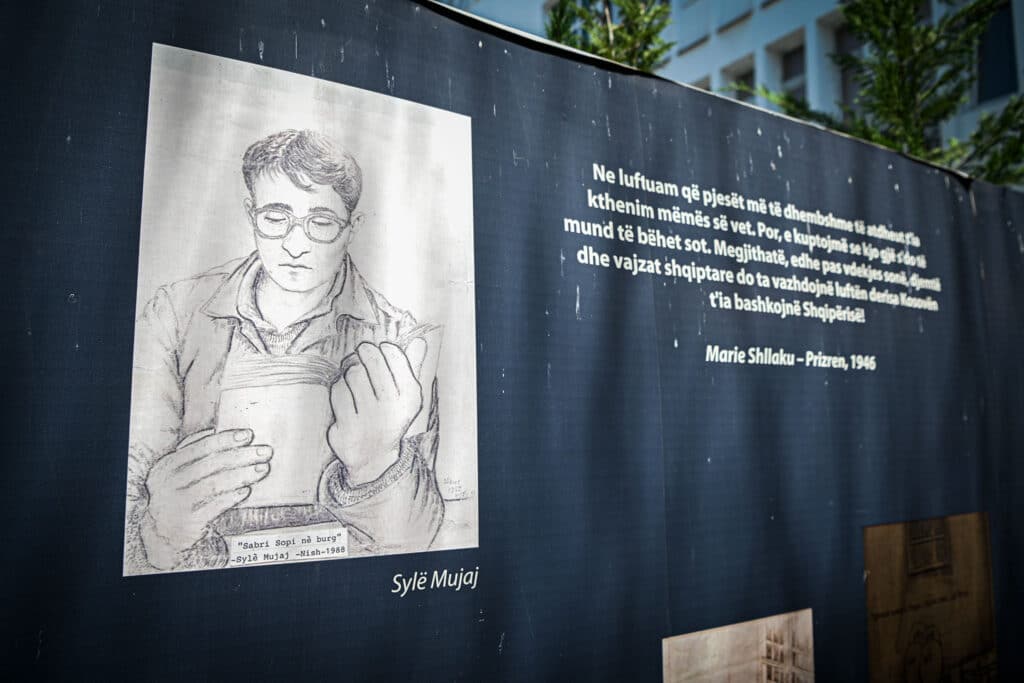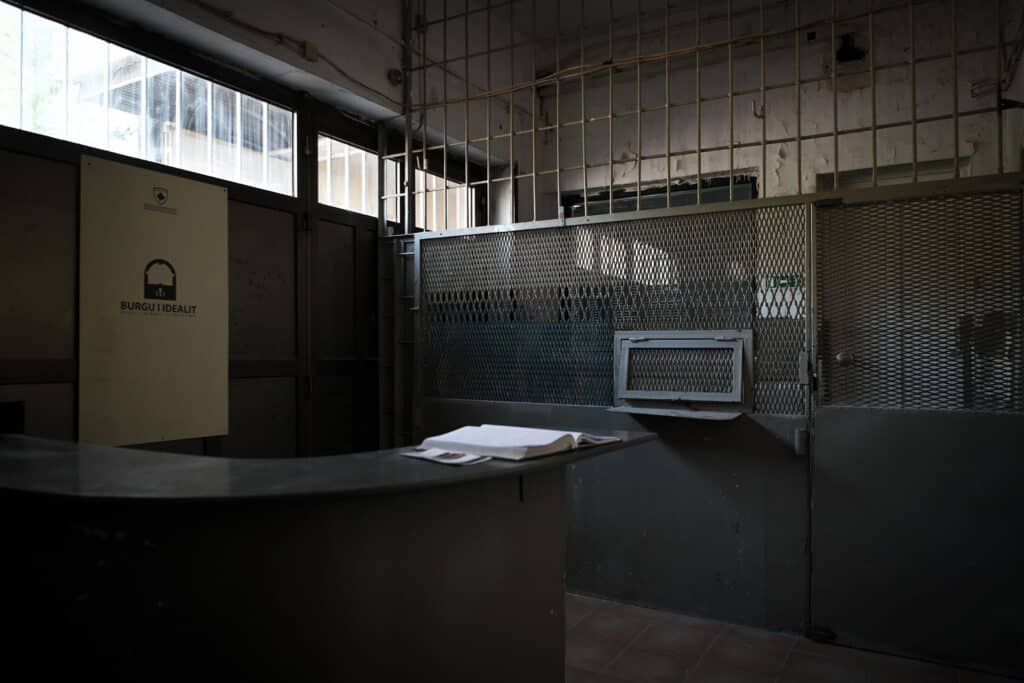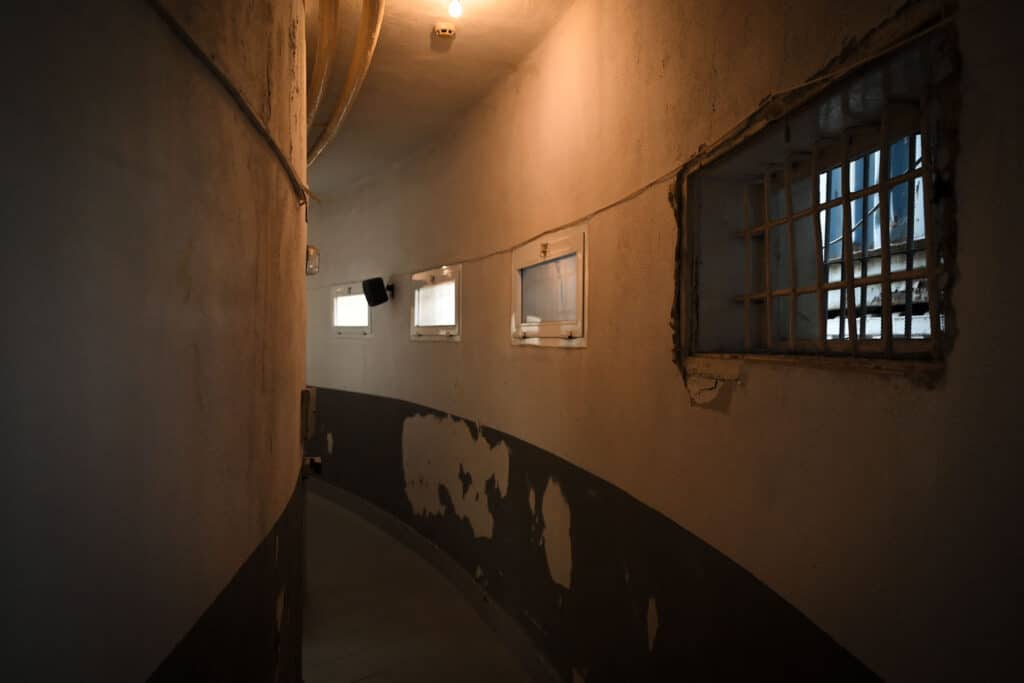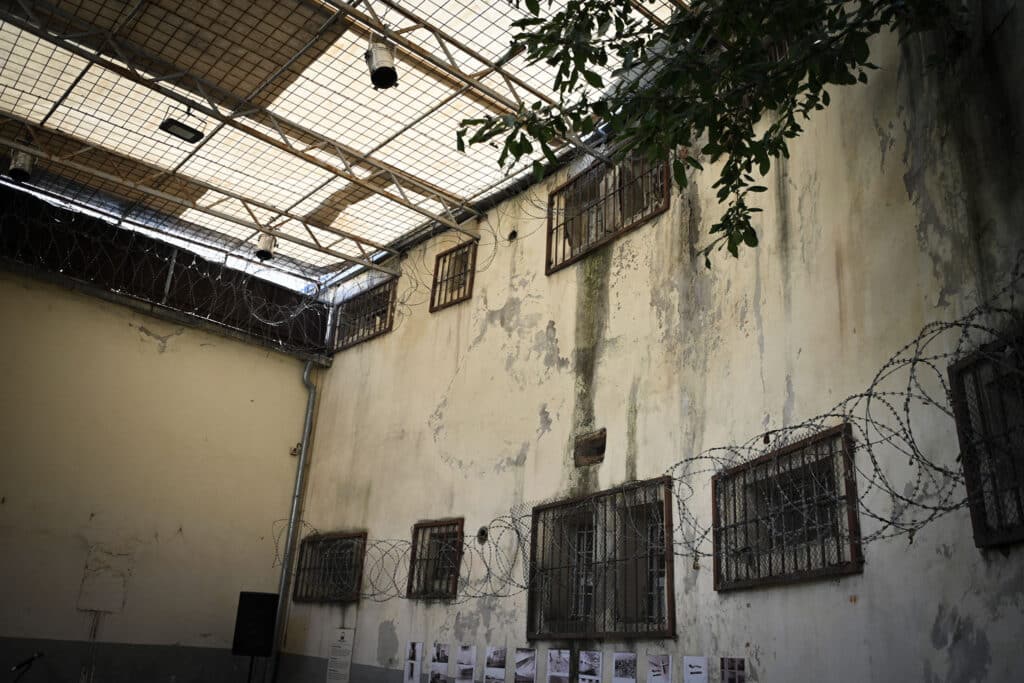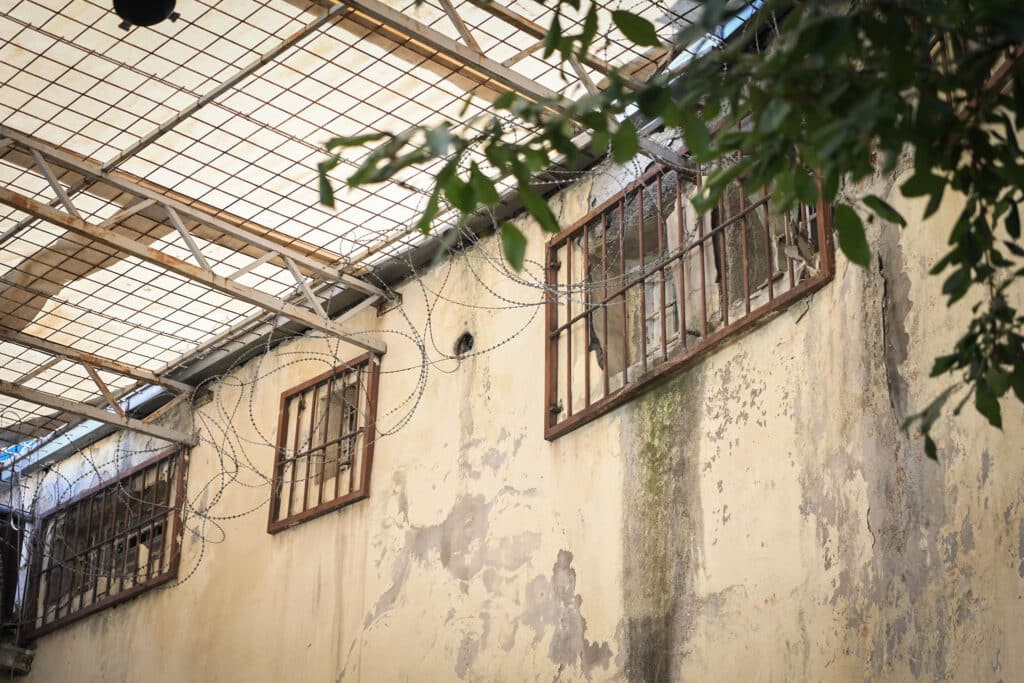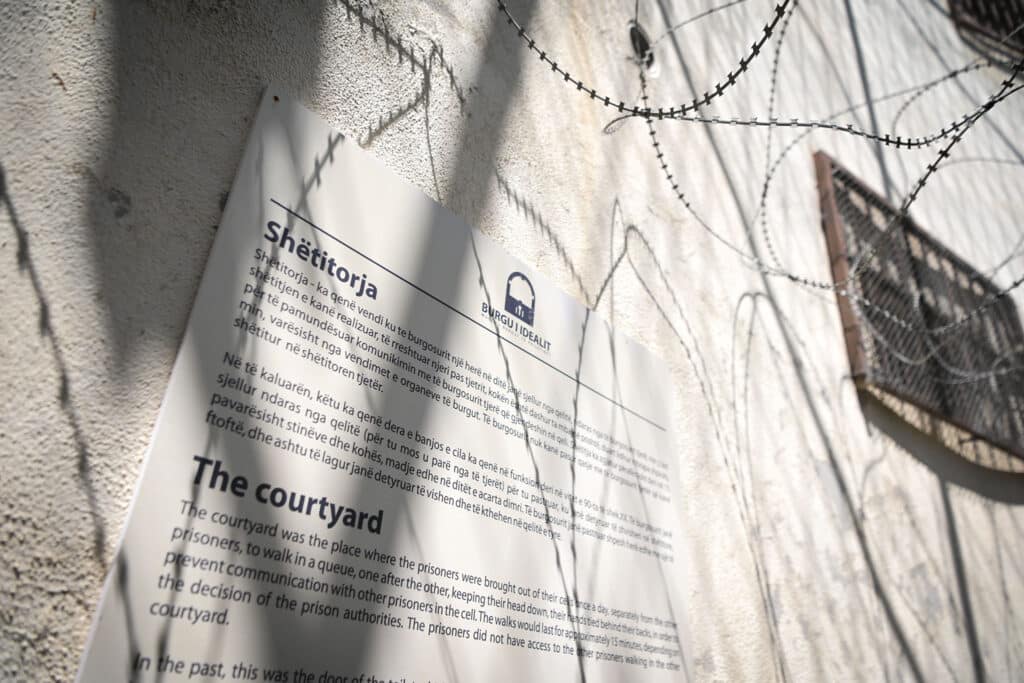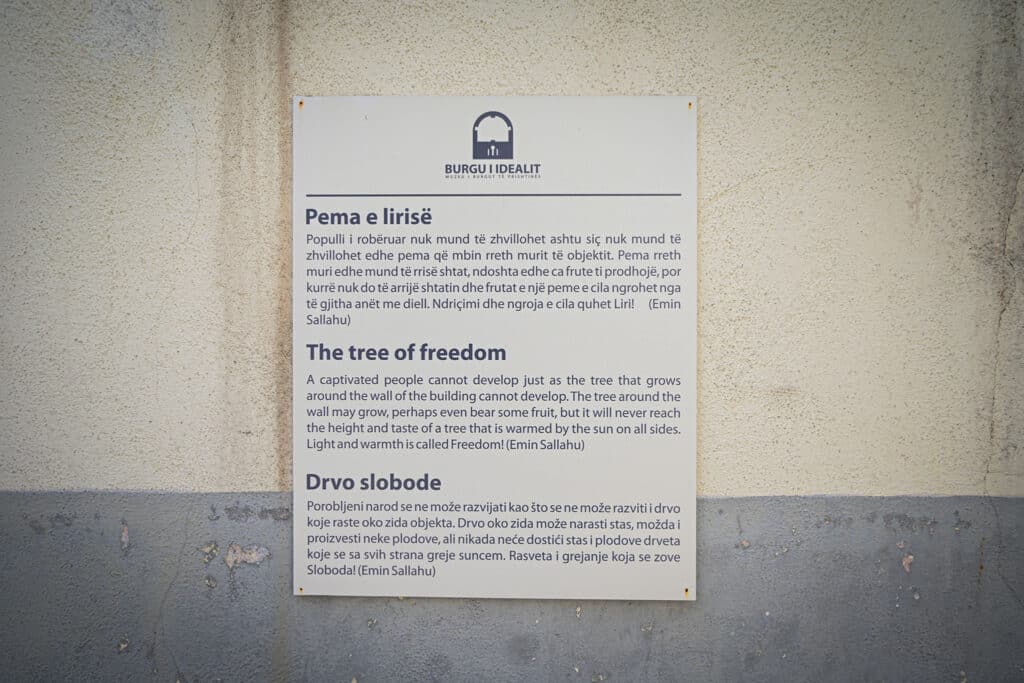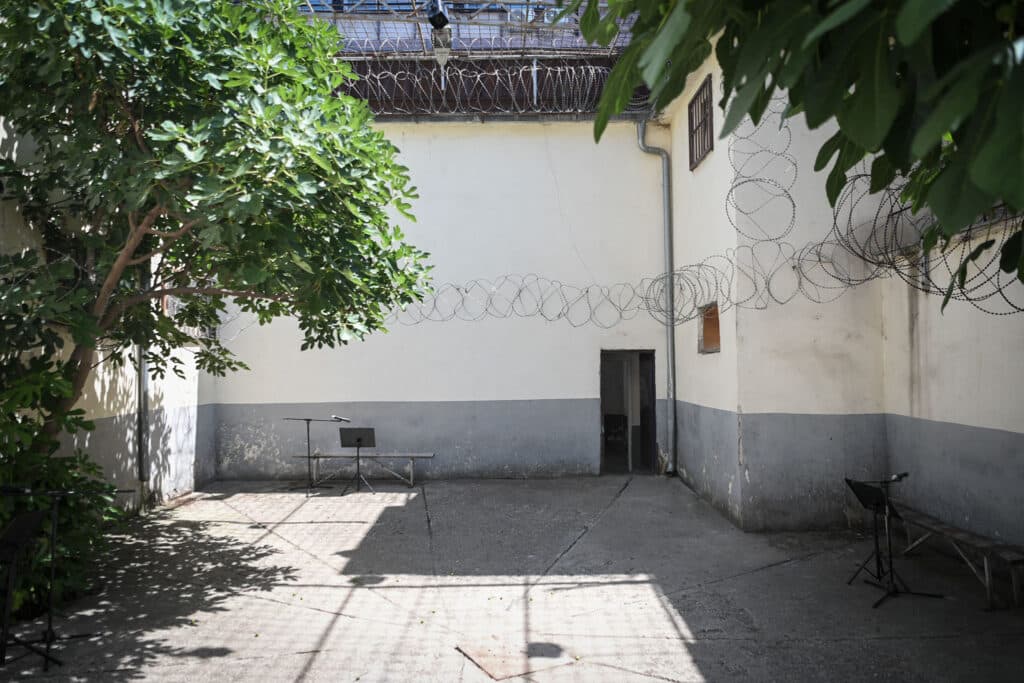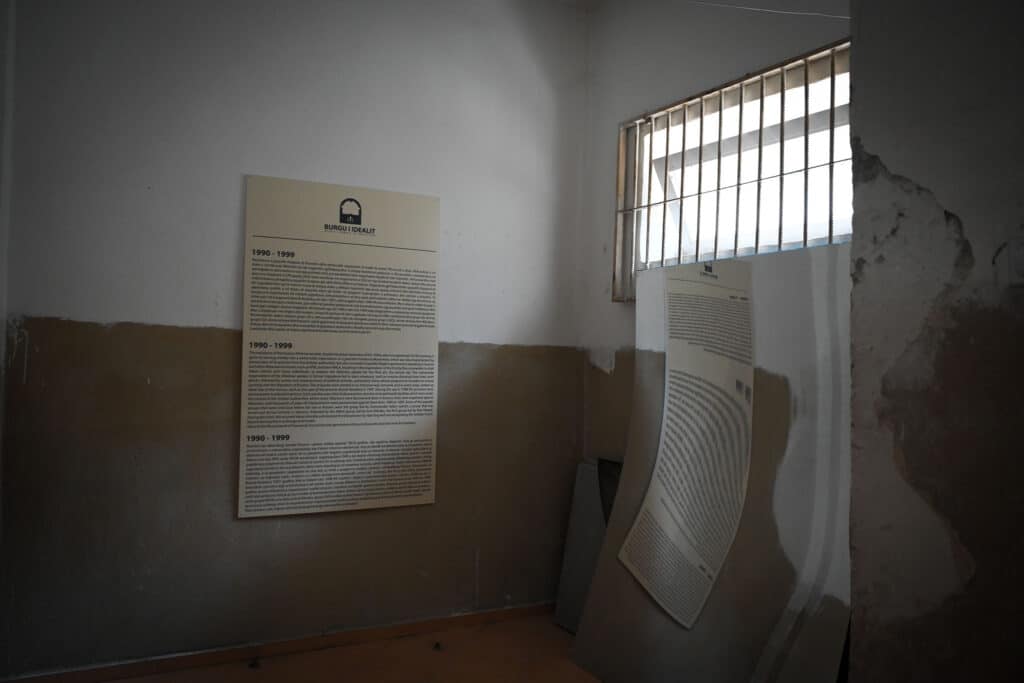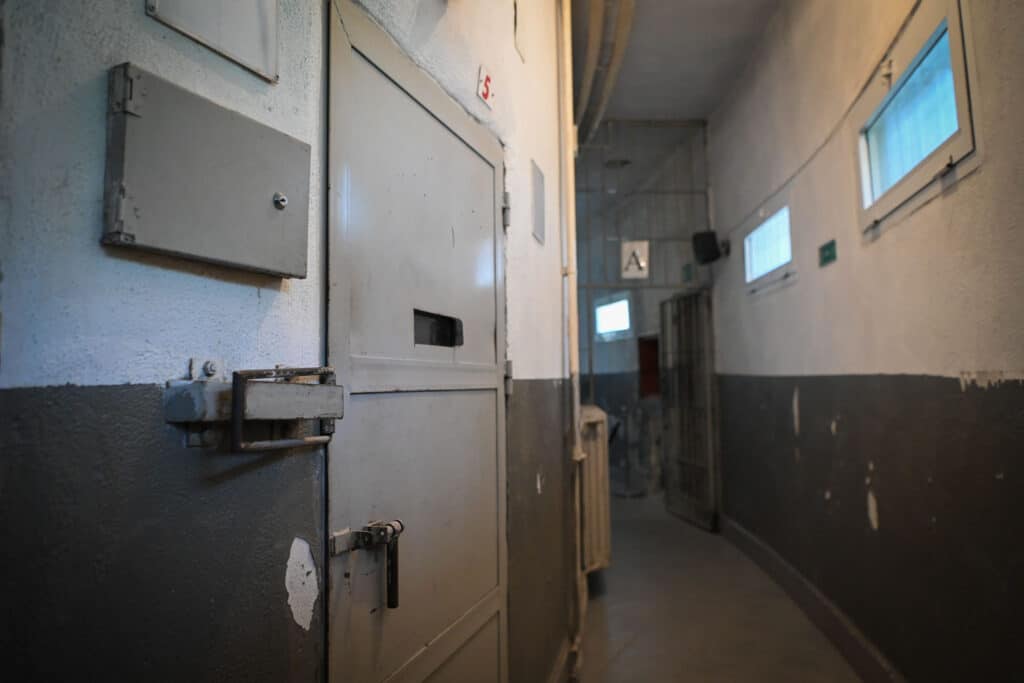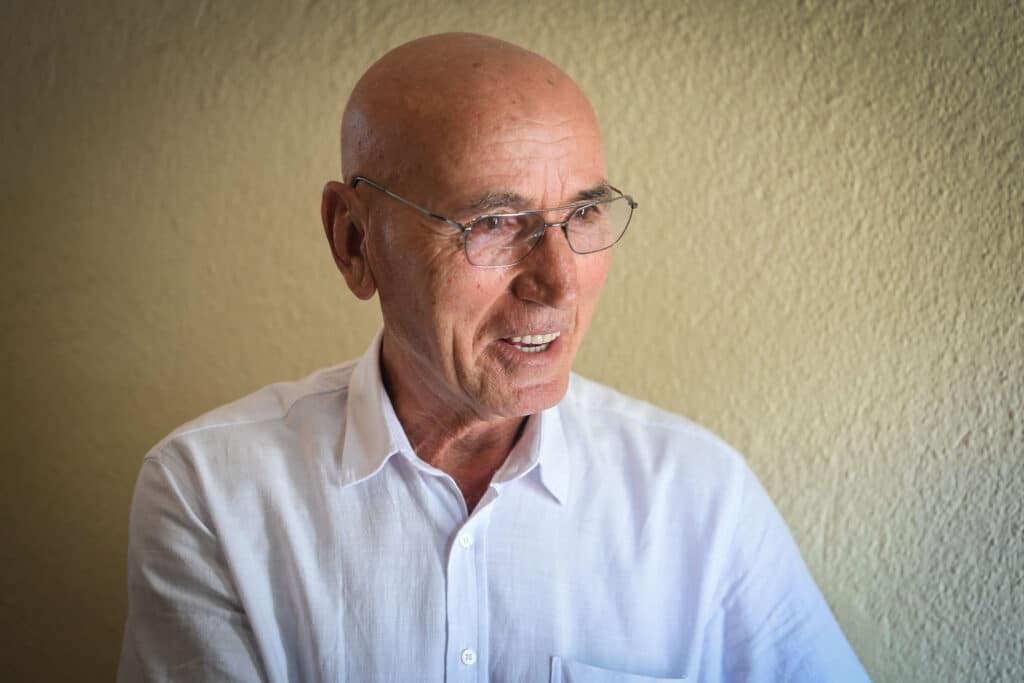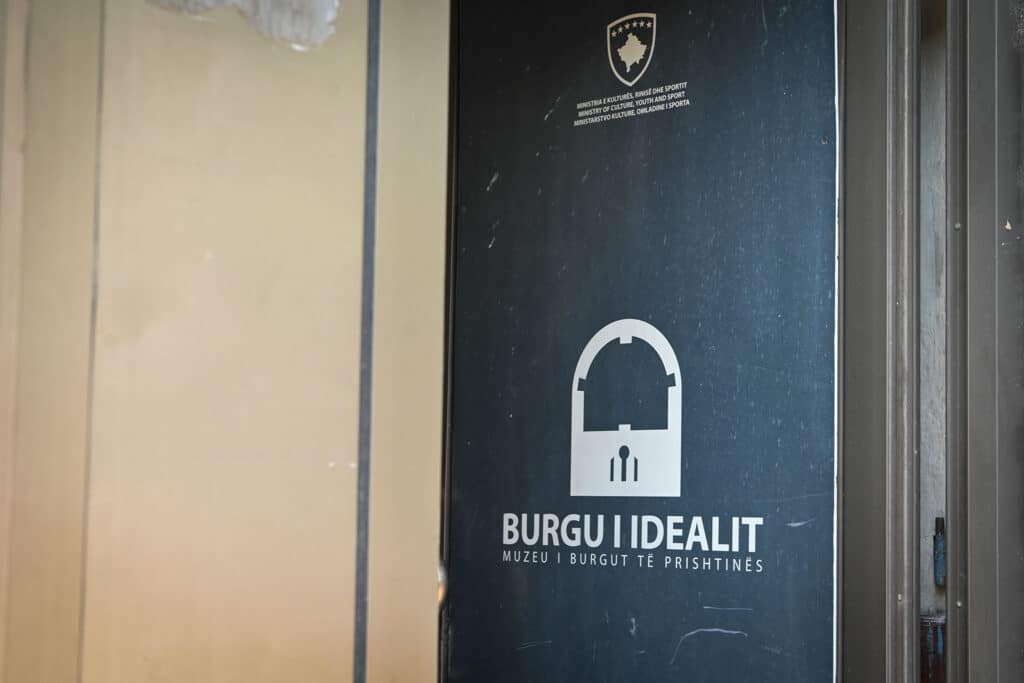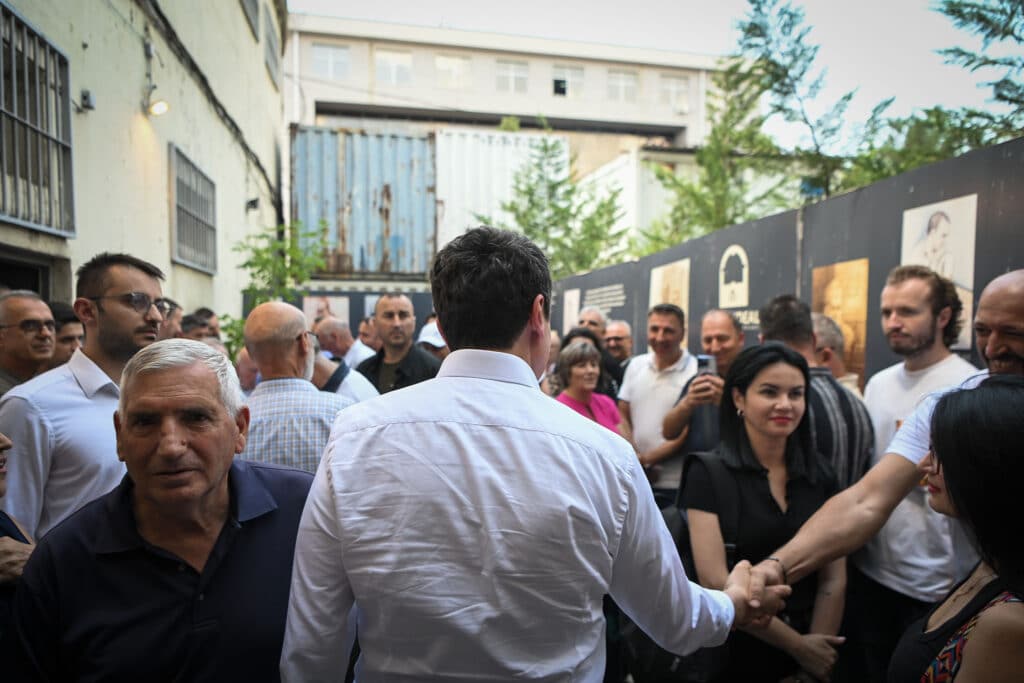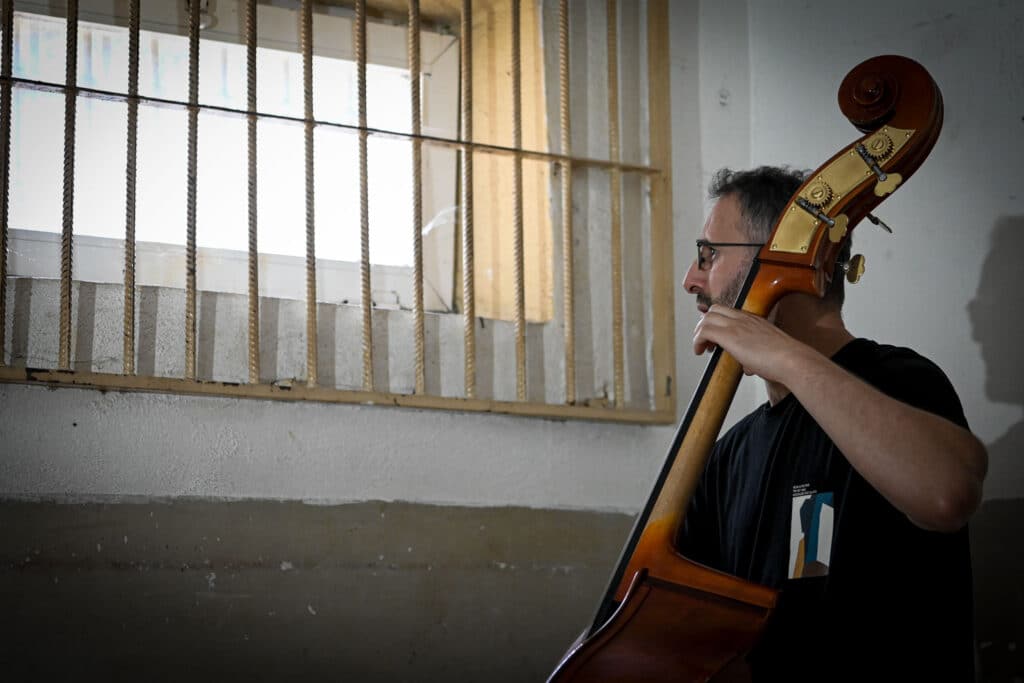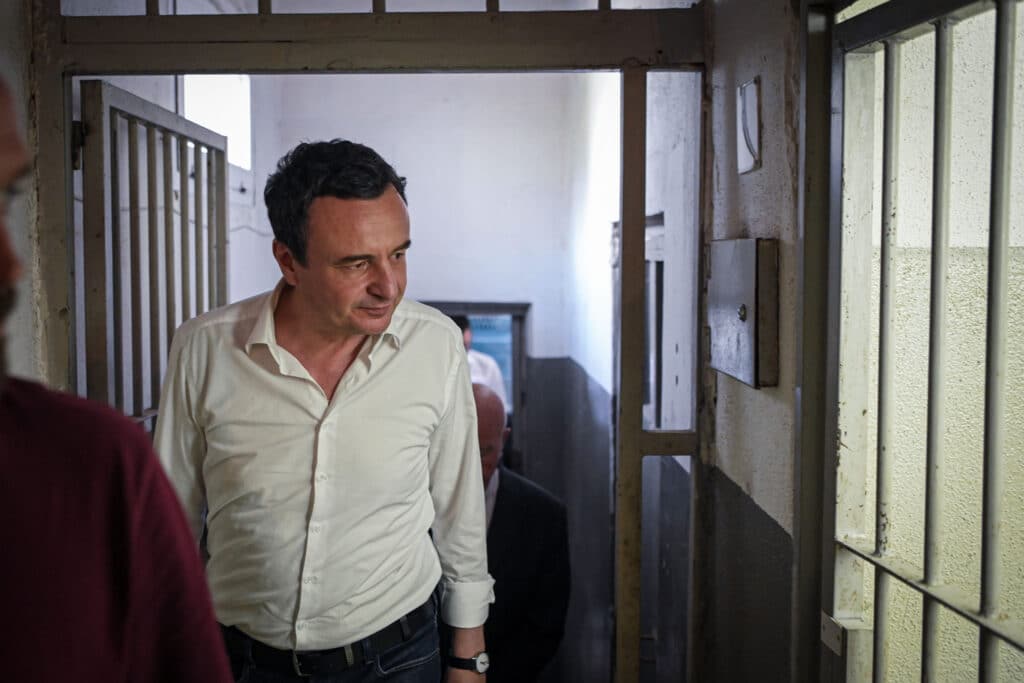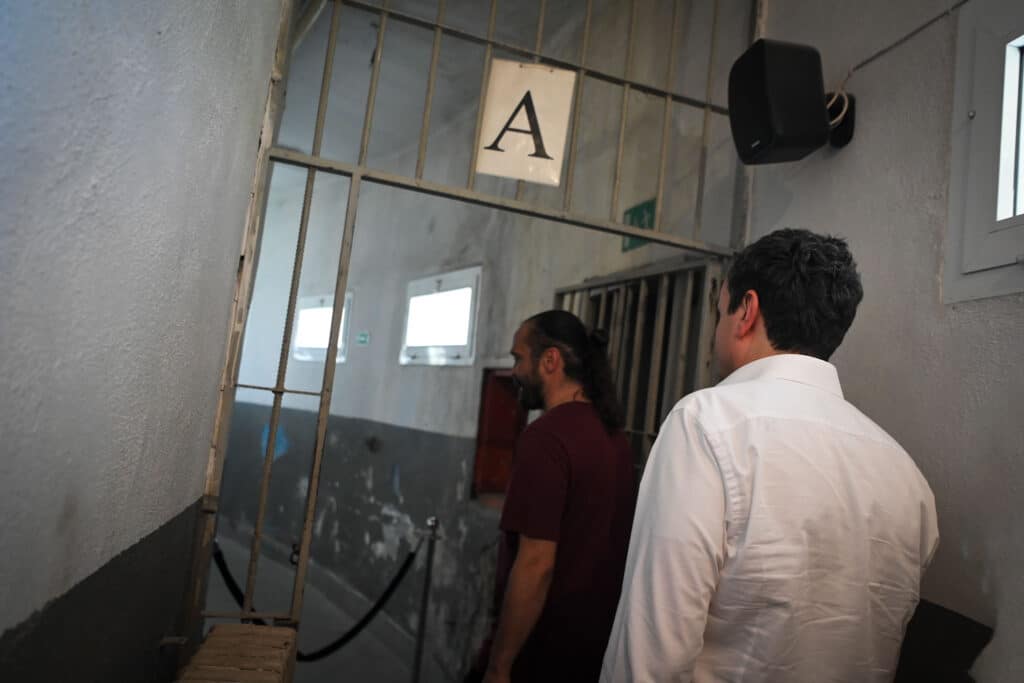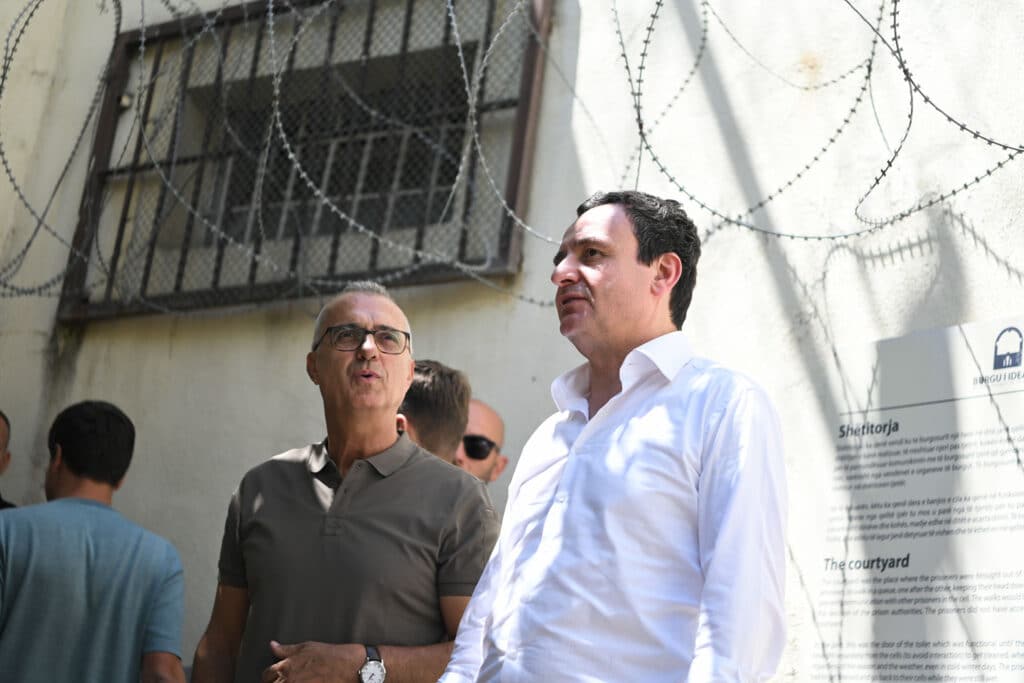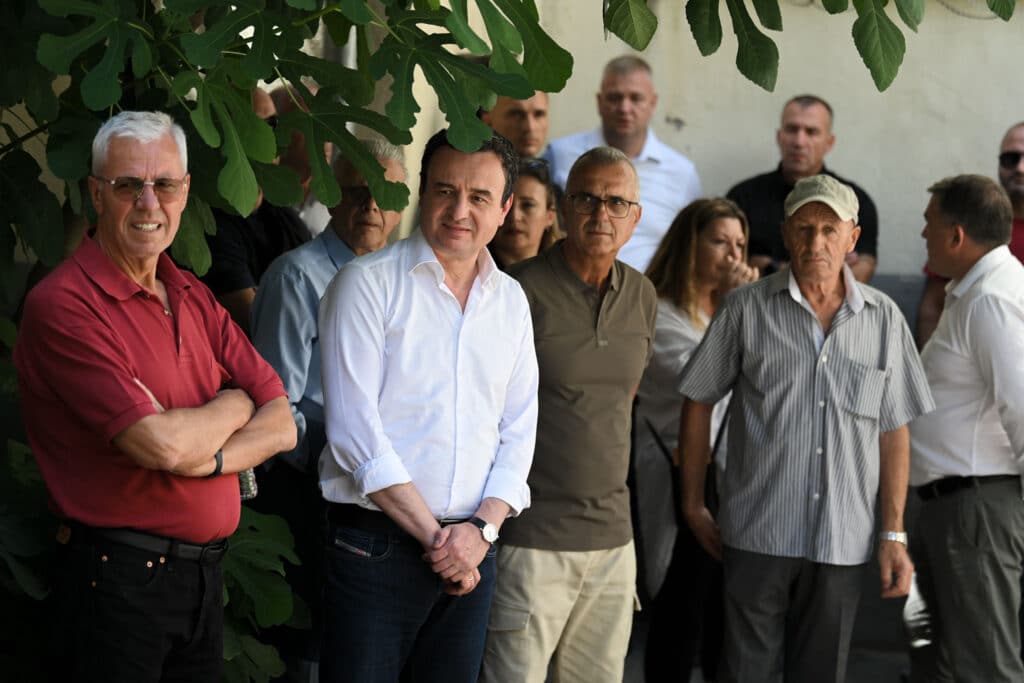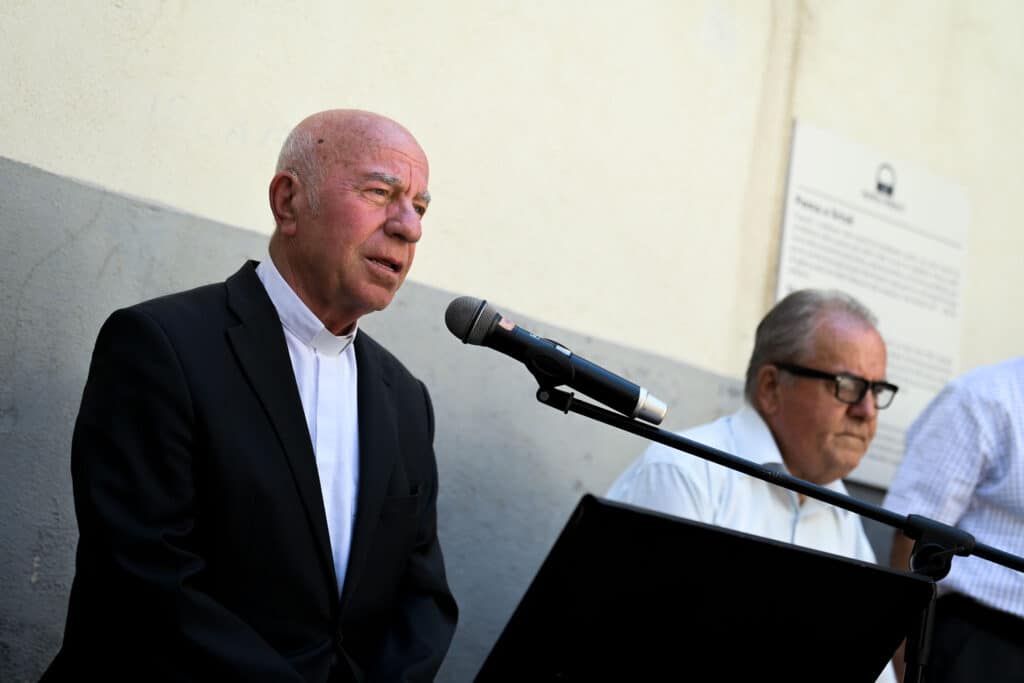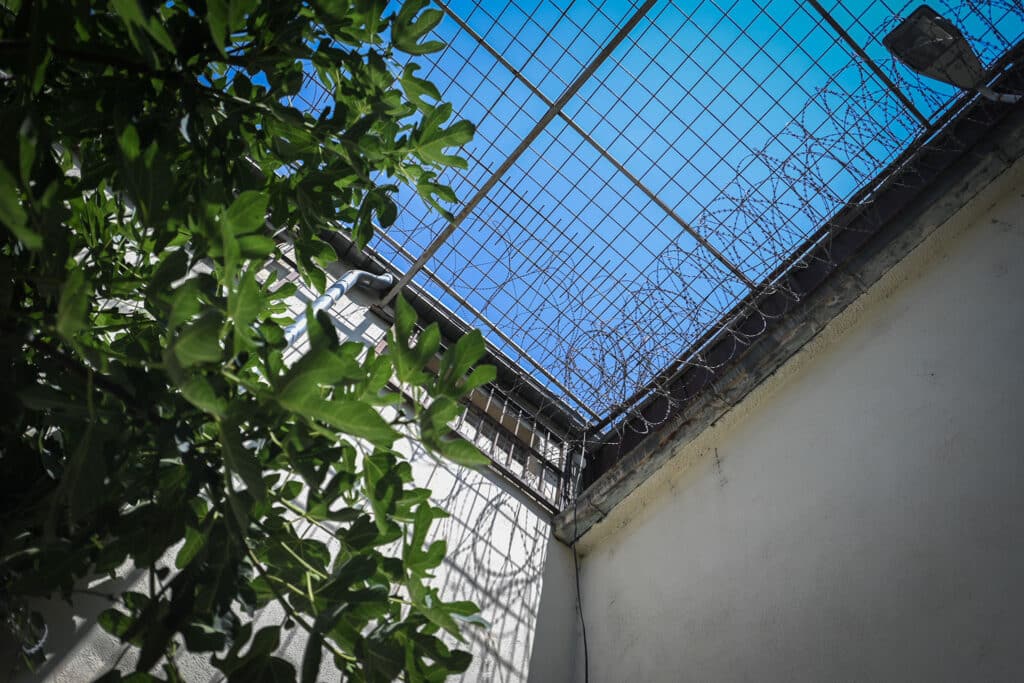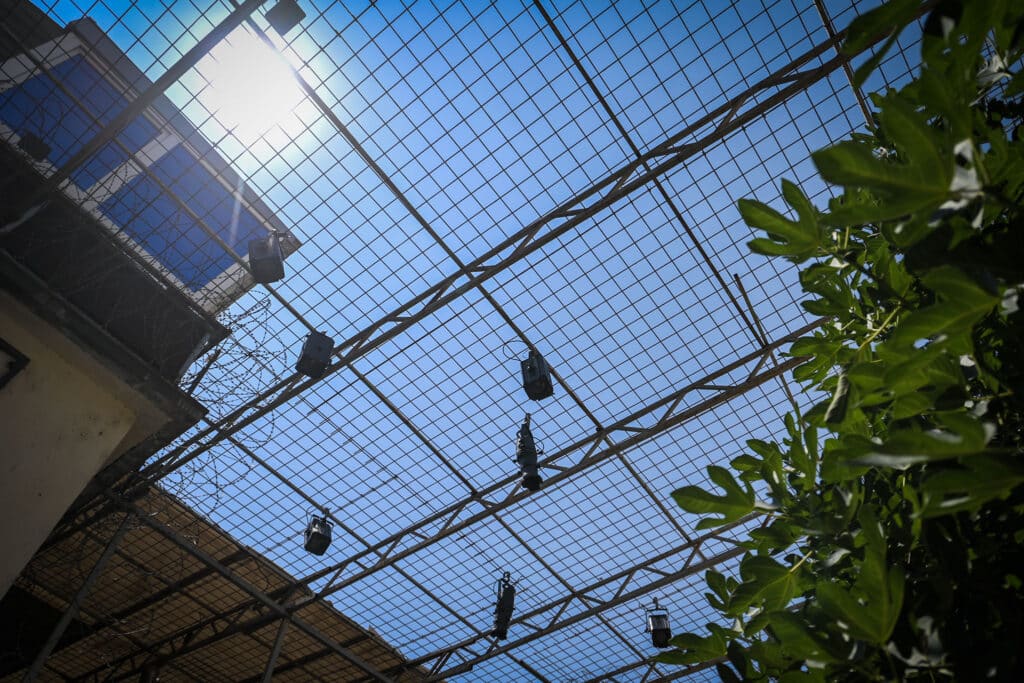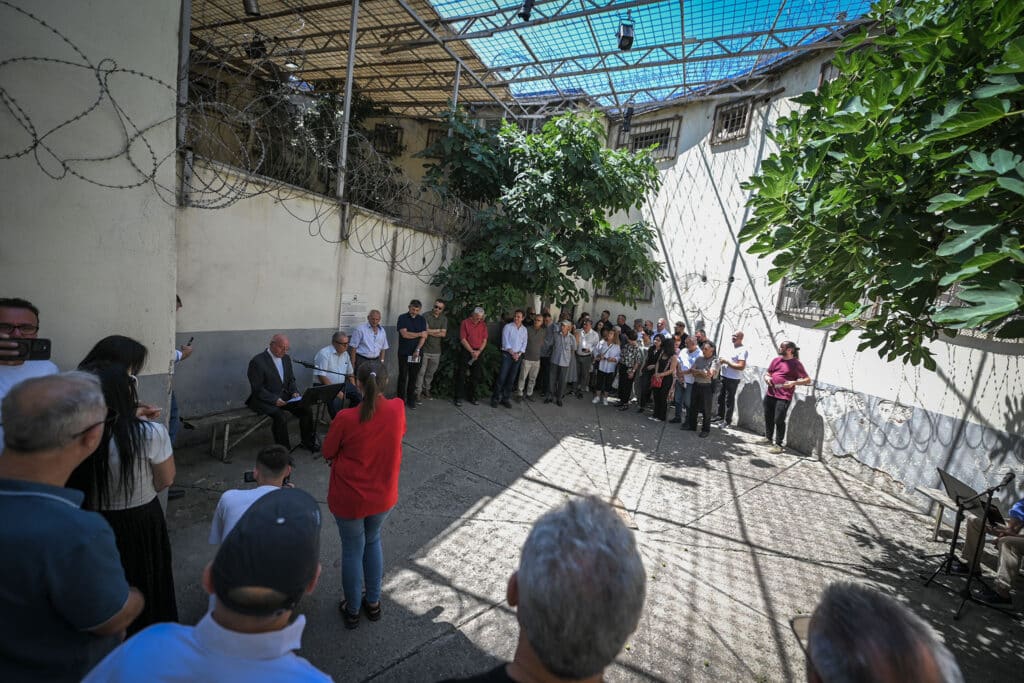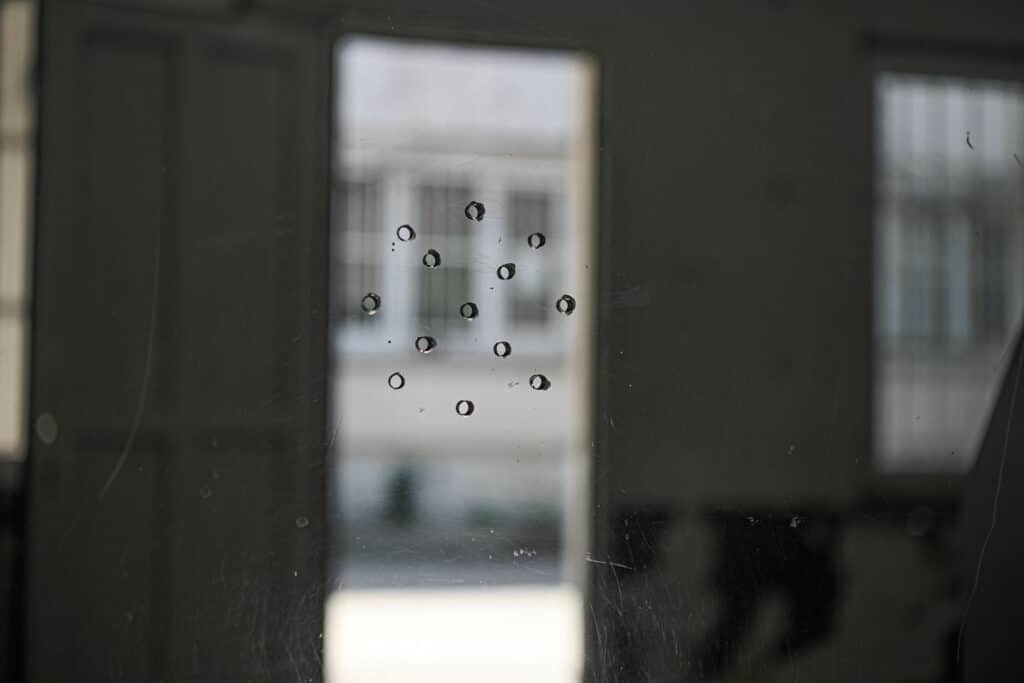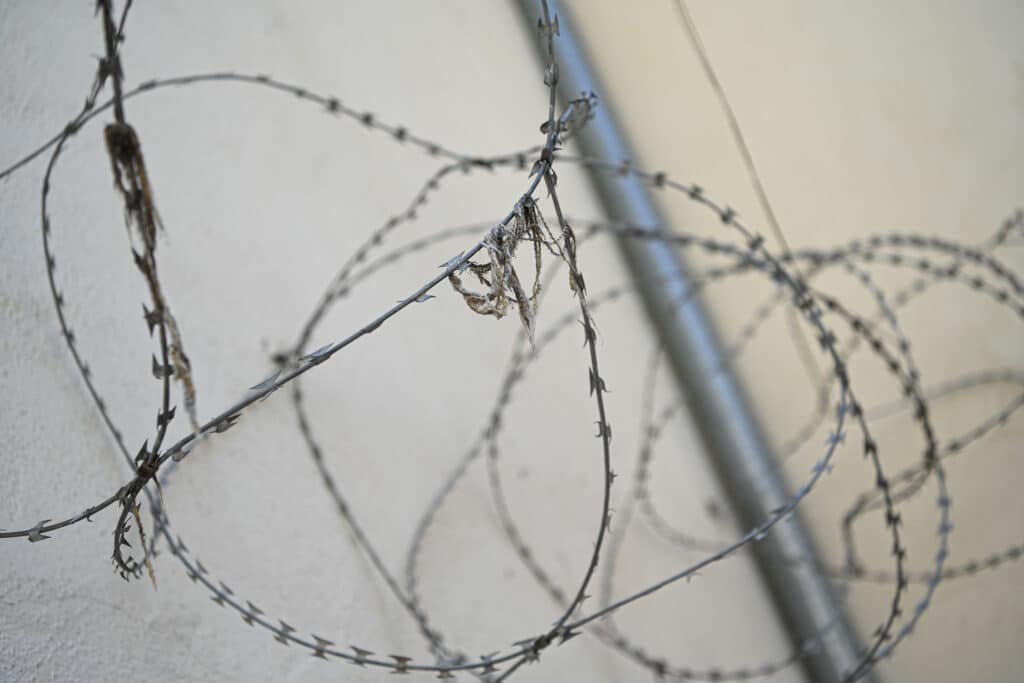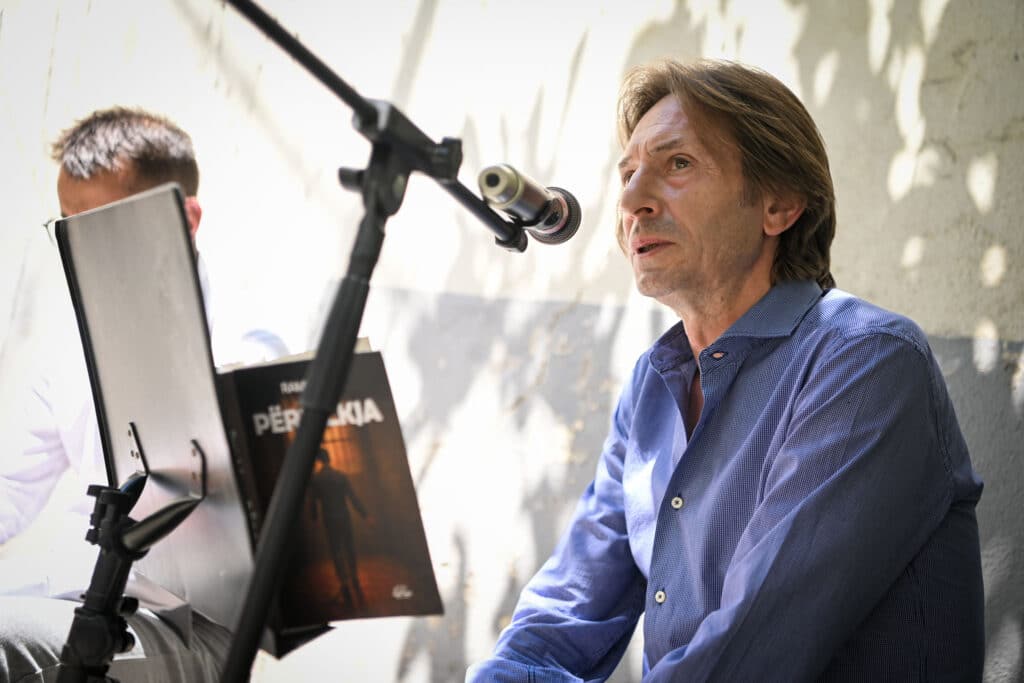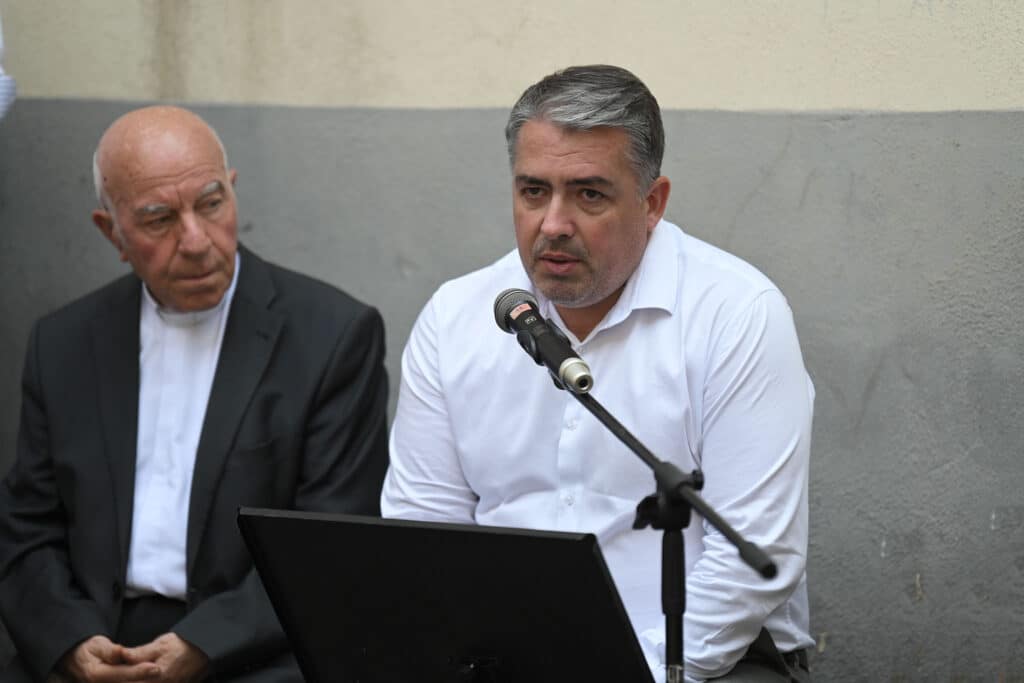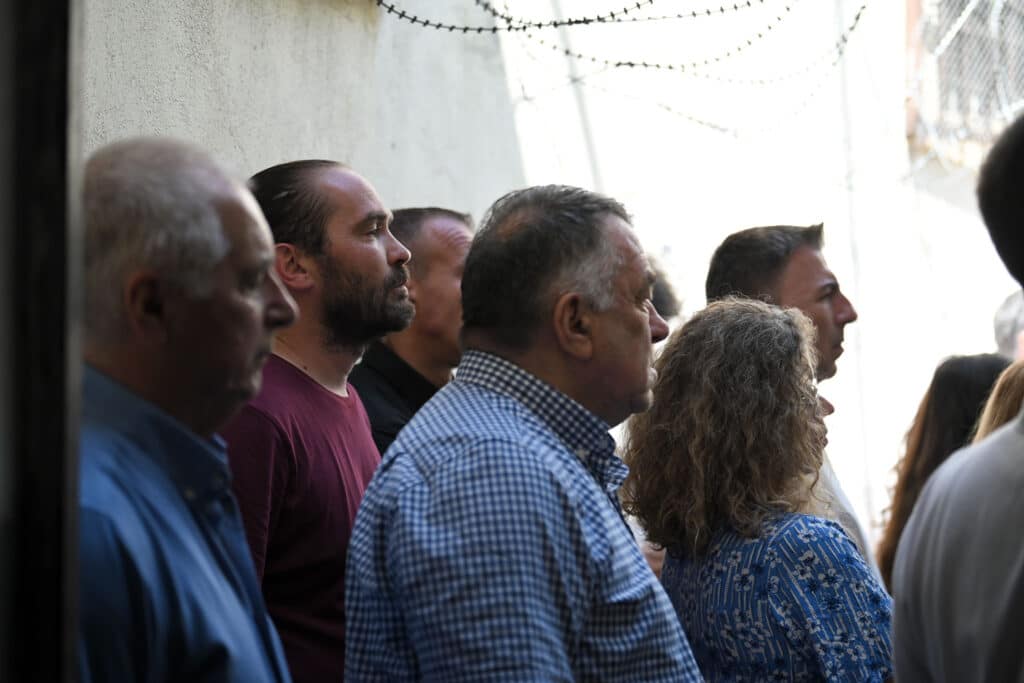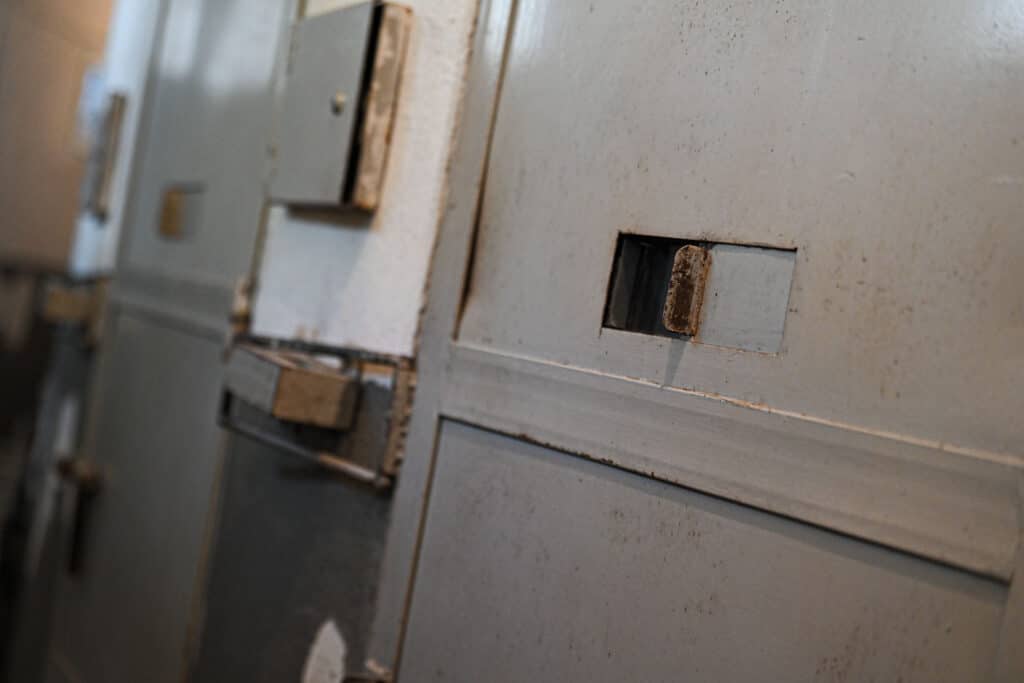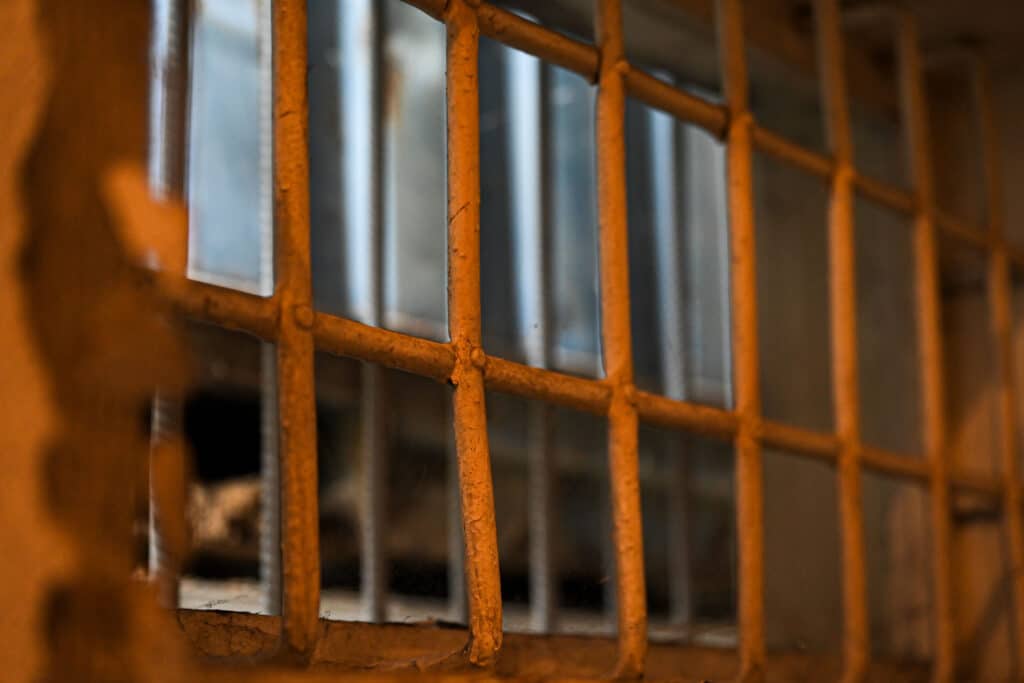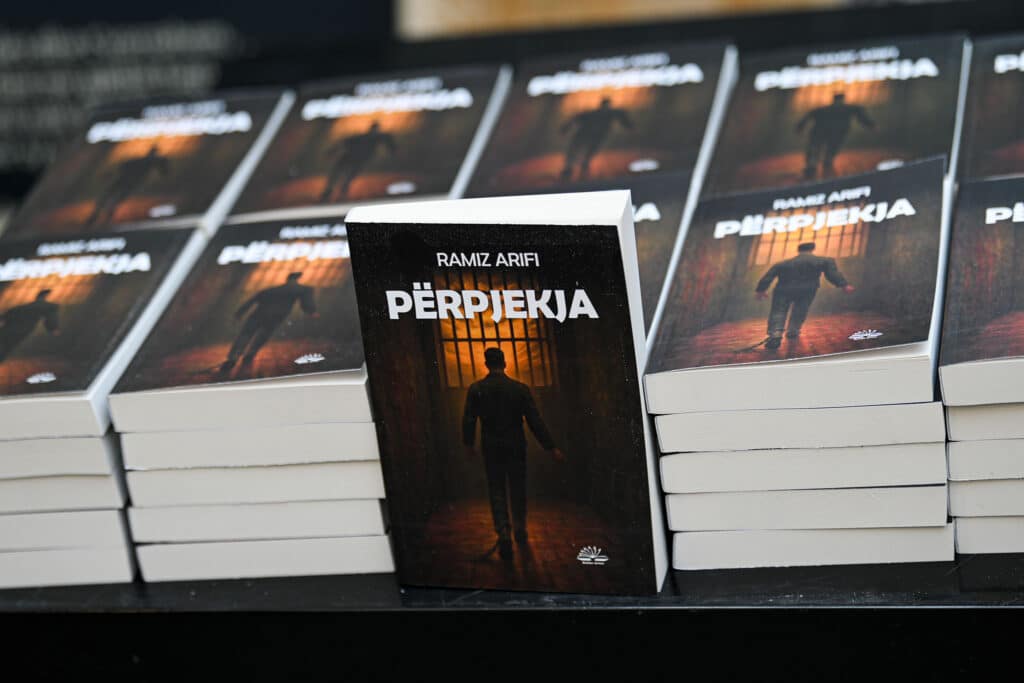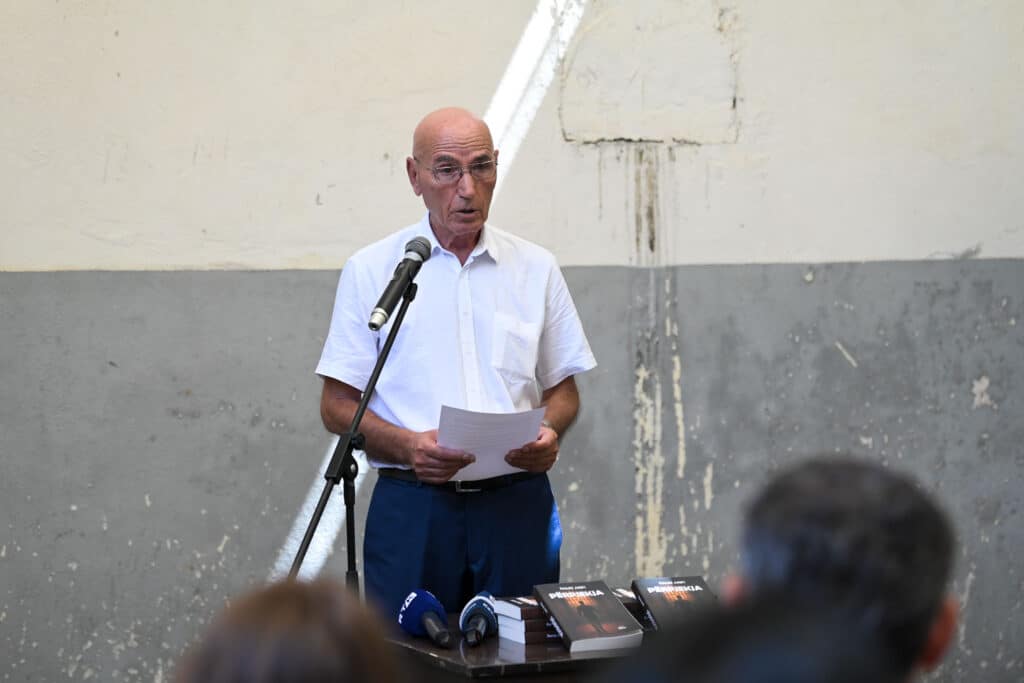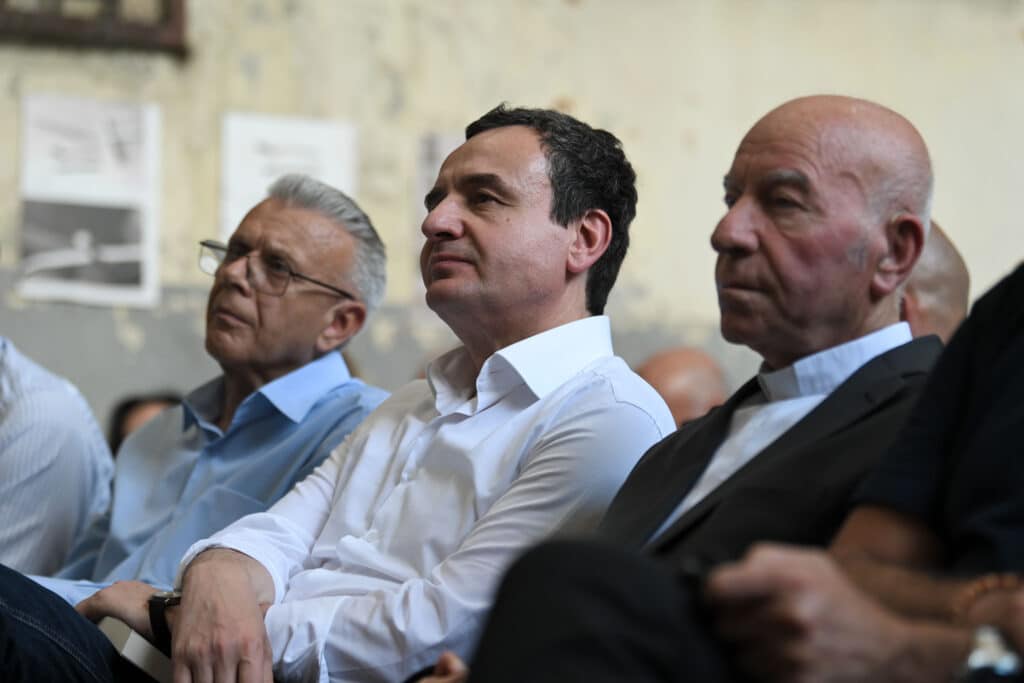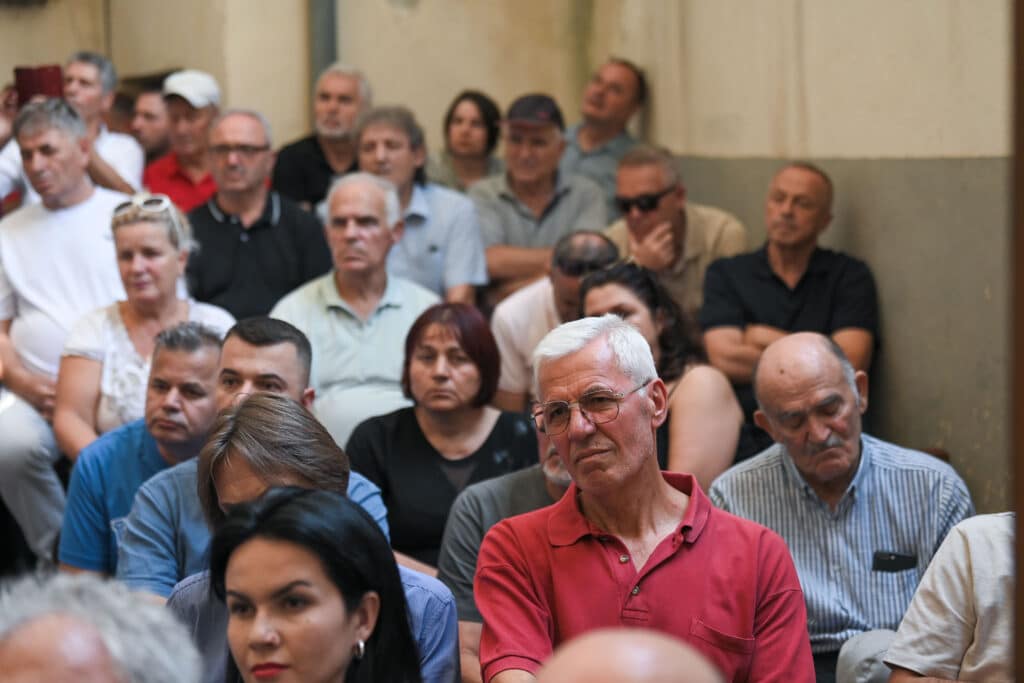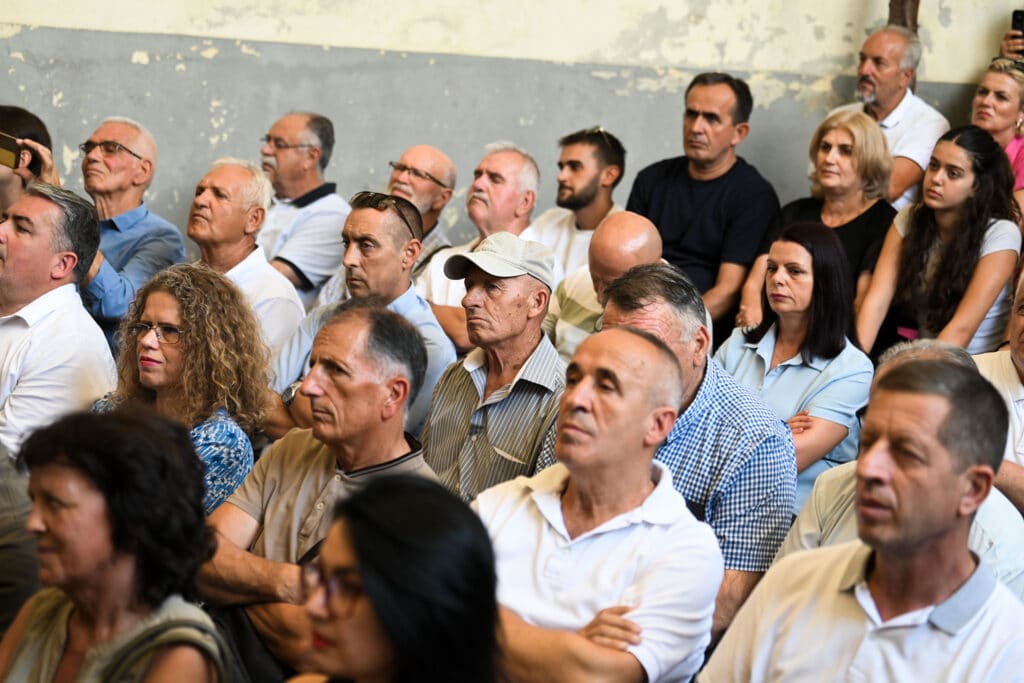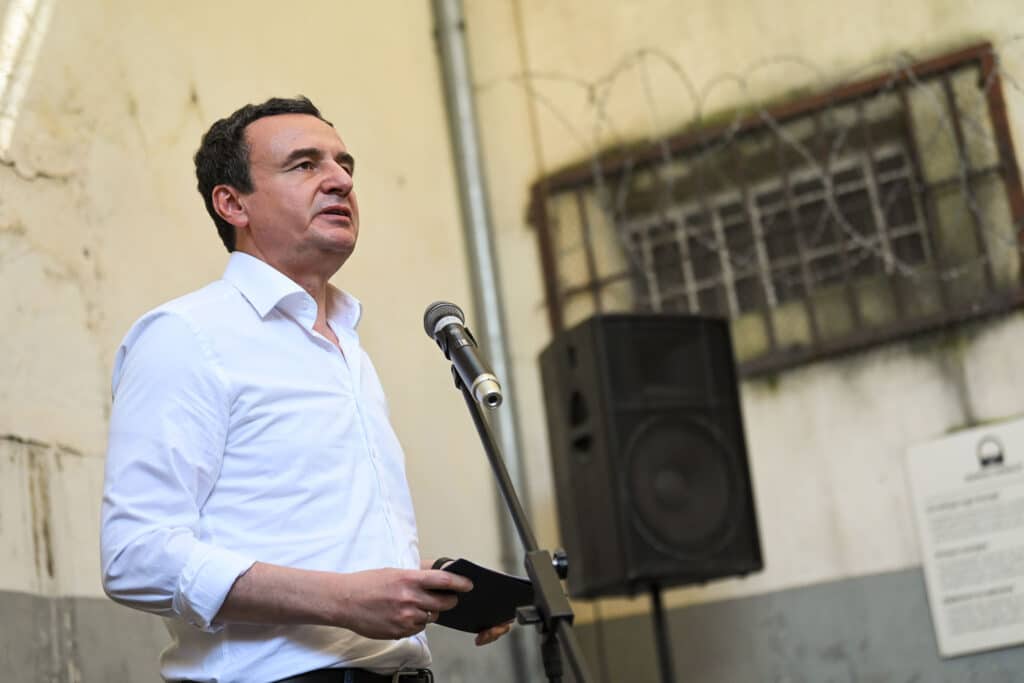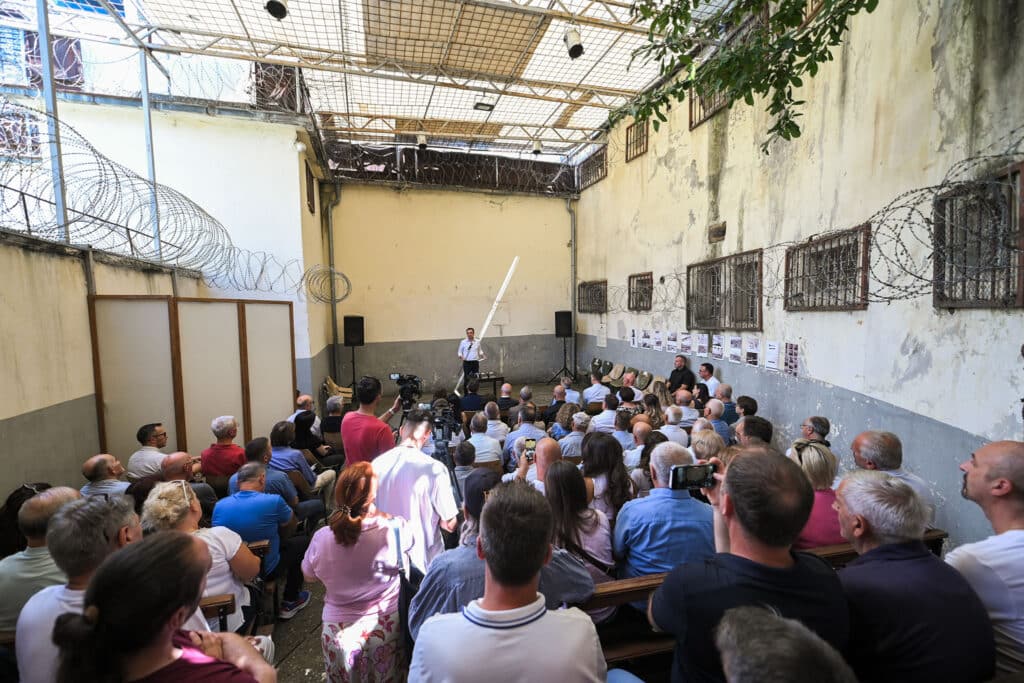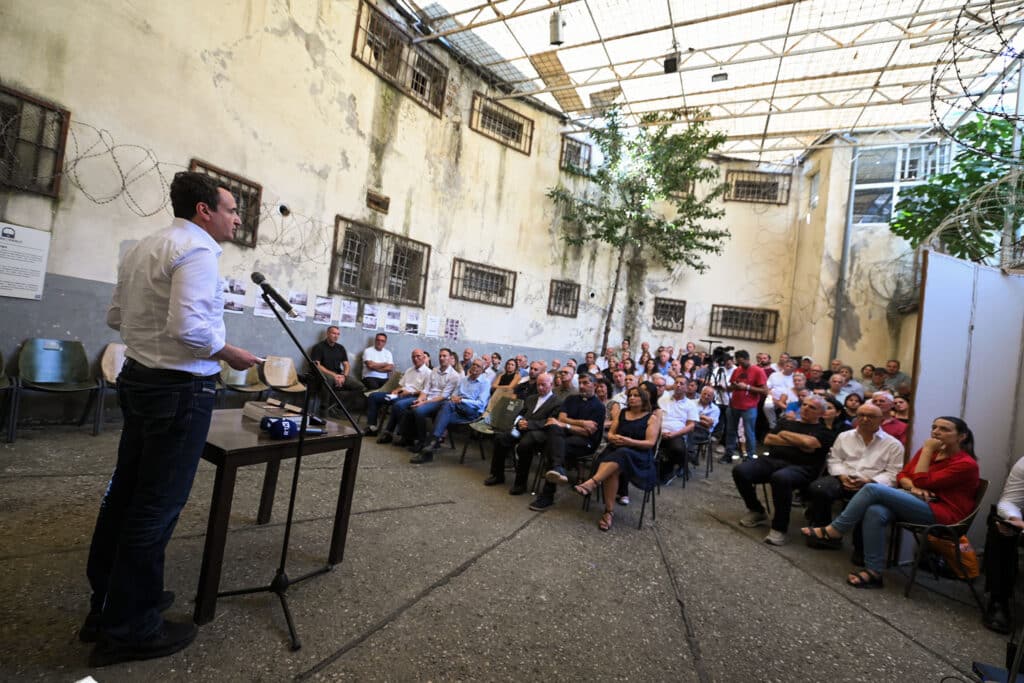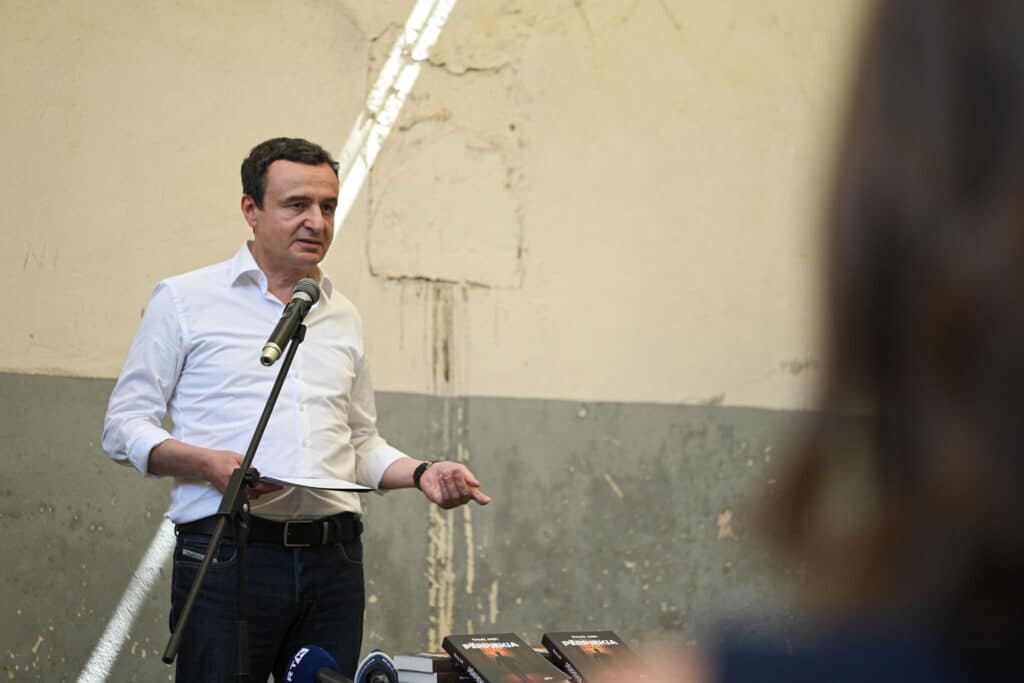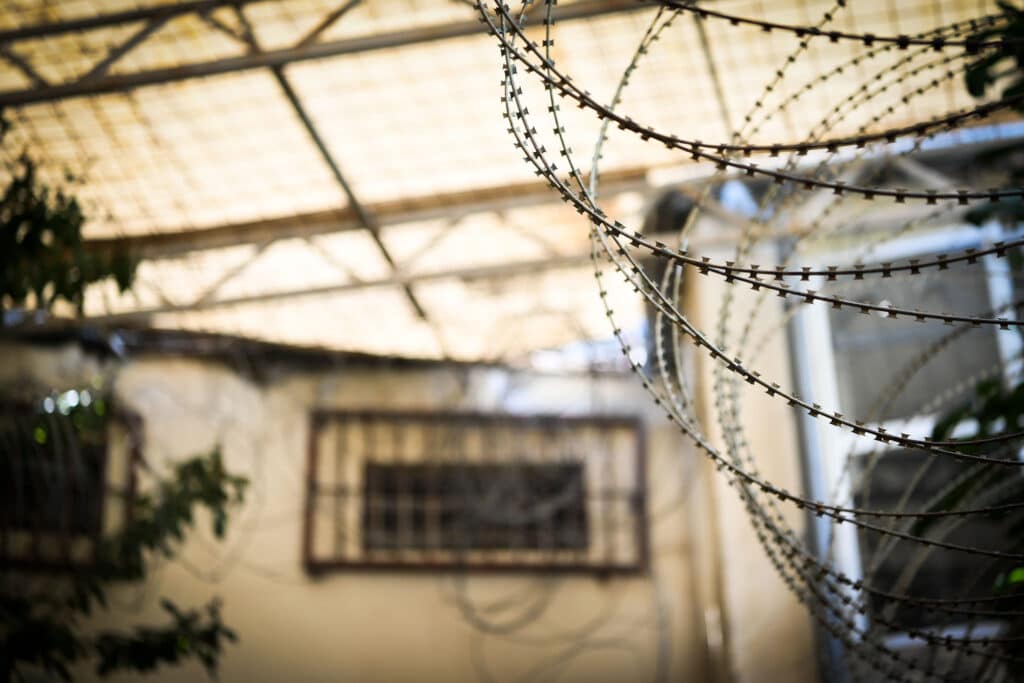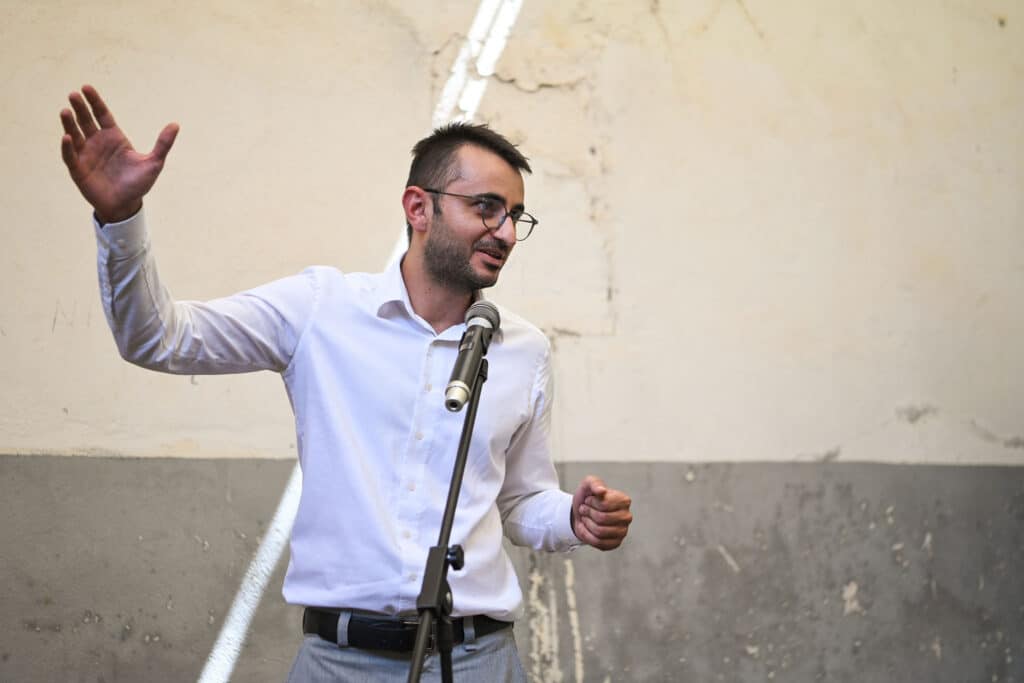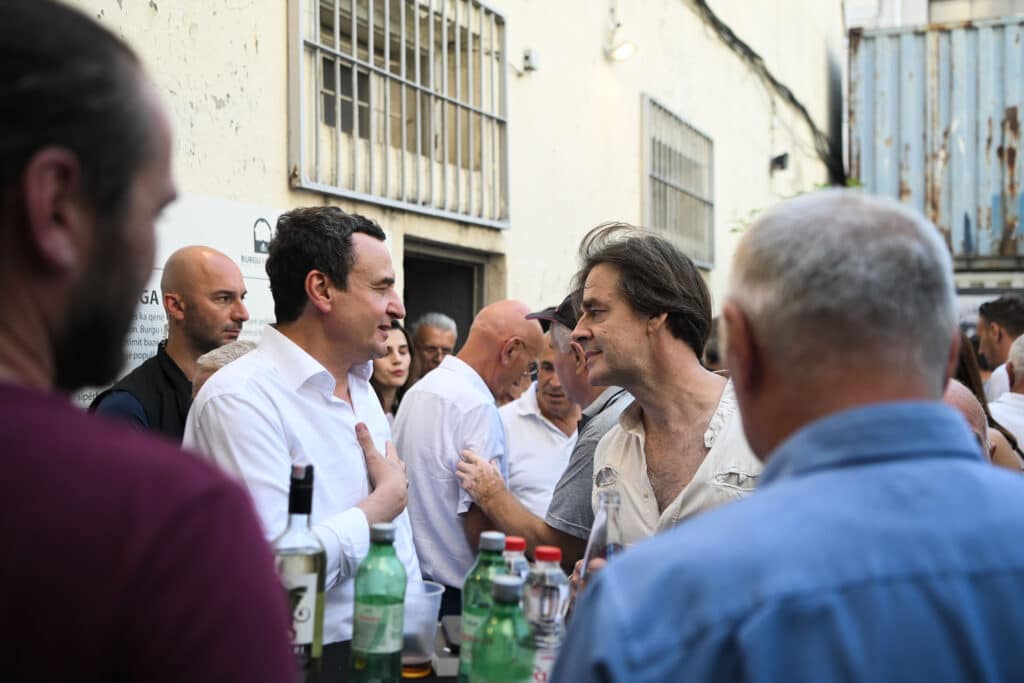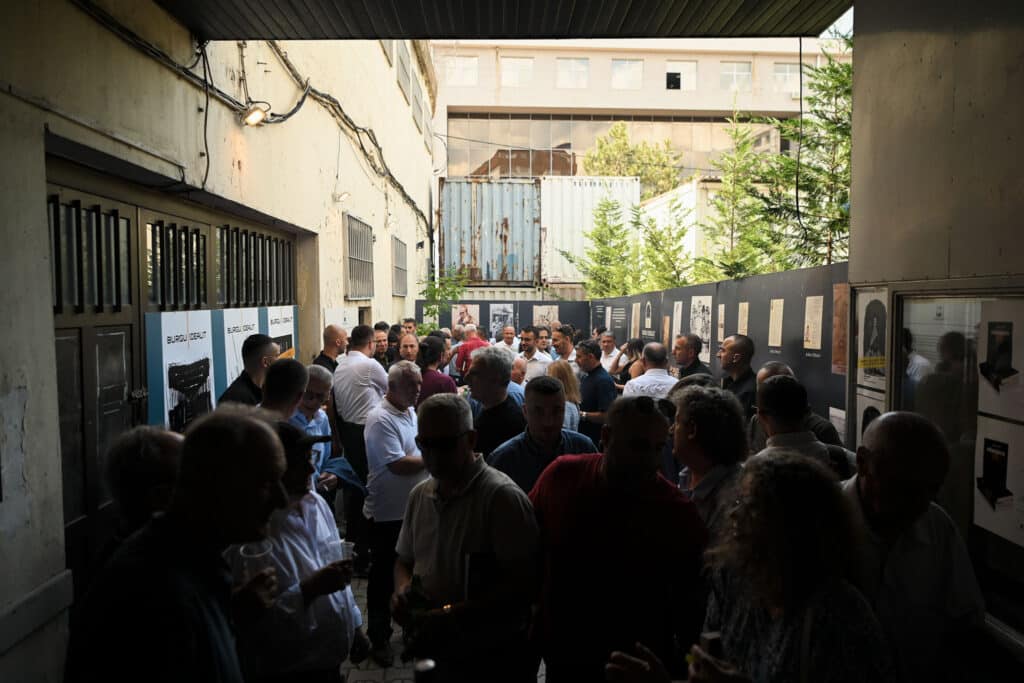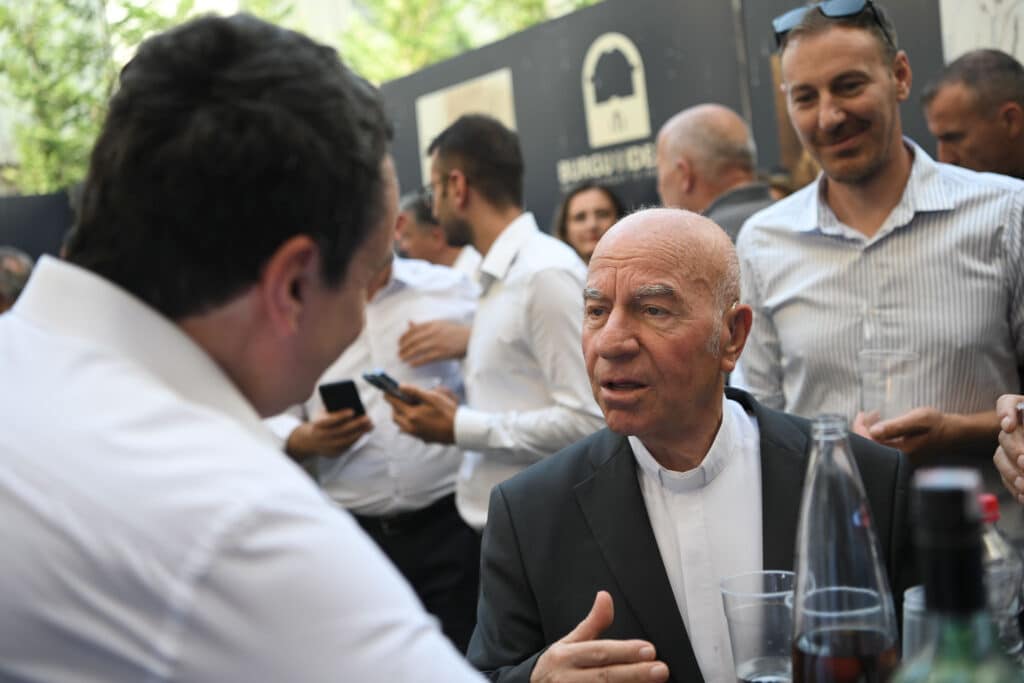Prishtina, August 2, 2025
The acting Prime Minister of the Republic of Kosovo, Albin Kurti, participated in the book launch of Përpjekja (the Endeavor), authored by Ramiz Arifi, held at the “Burgu i Idealit” (The Prison of the Ideal) Museum in Prishtina.
Before the attendees, including former political prisoners and activists of the national cause, Prime Minister Kurti emphasized in his opening remarks that Albanians have spent at least 666 centuries imprisoned in the prisons of the former Yugoslavia, one of which was this infamous Prishtina Prison.
“Every time I return to this building, the only prison where people can freely enter and visit, I am increasingly convinced that there is no other place in all of Kosovo that can evoke as many conflicting emotions as this prison. Here, where once people were imprisoned and suffered for their beliefs, political stances, and activism, today we gather in conditions of freedom to speak amid memories precisely about those times. Formerly known as the Detention Center or the Prishtina District Prison, and now named by the museum as the Prison of the Ideal, this building has confined and hidden, and paradoxically also preserved, thousands of stories and human fates,” he said.
Speaking about the book being promoted today, the Prime Minister stated that in its 260 pages, author Ramiz Arifi narrates almost his entire life—from childhood until the early days of Kosovo’s liberation.
“Although this book is a first-person narrative, it is not merely the life story of an individual or an author. Within it, many events involving important figures in Kosovo’s political history can be read, including the author’s experiences alongside Metush Krasniqi, Besnik Krasniqi, Hydajet Hyseni, Hyrije Hana, Rexhep Malaj, Bajrush Xhemajli, and many others from secret political organizations and even the Kosovo Liberation Army. In fact, in this book, Ramiz recounts how, as a member of the Council for the Protection of Human Rights and Freedoms, in February 1998, he happened to meet Hamëz and Adem Jashari in their guest room in Prekaz,” he added.
He added that former political prisoners have published hundreds of books of poetry, letters, memoirs, testimonies, and stories from their past imprisonment and political activities. These works primarily aimed at the liberation of Kosovo from Yugoslavia, dominated by Serbia, and the unification of Albanian-populated territories with Albania. These books have created a distinct chapter in the history of Albanian literature and memoirs, known today as prison literature. Ramiz Arifi’s Përpjekja (the Endeavor), will join this chapter.
“With honors and gratitude for the contributions of political prisoners and activists from all periods of Kosovo’s history and the Albanian nation, and wishing all the best to everyone present, thank you very much and congratulations to the author,” Prime Minister Kurti said at the end.
Full speech of Prime Minister Kurti:
Honorable Mr. Ramiz Arifi, author of the book Përpjekja (the Endeavor), being launched today,
Respected former political prisoners, disabled persons, and veterans of the Kosovo Liberation Army, activists of the national cause,
Honorable Don Lush Gjergji and other religious clerics,
Esteemed former prisoners of all periods and generations,
As we know, Albanians have spent at least 666 centuries imprisoned in the prisons of the former Yugoslavia, one of which was this infamous prison in Prishtina.
Every time I return to this building, the only prison where people can freely enter and visit, I am increasingly convinced that there is no other place in all Kosovo that can evoke as many conflicting emotions as this prison. Here, where once people were imprisoned and suffered for their beliefs, political stances, and activism, today we gather in freedom to speak among memories precisely about those times. Formerly known as the Detention Center or the Prishtina District Prison, and now named by the museum as the Prison of the Ideal, this building has confined and hidden, paradoxically also preserved, thousands of stories and human fates.
Among these are the stories and fates of many political prisoners who endured detention and prison hardships here, including interrogations and torture, in the prison and in the security and police buildings adjacent to it. It is precisely such a story, written in an autobiographical book, that has brought us together again here at the Prishtina Prison. The book Përpjekja (the Endeavor), written by Ramiz Arifi from Breznica, Bujanoc, who spent over seven years in the prisons of Yugoslavia during the 1980s, after being sentenced to 11 years in 1983.
In the 260 pages of this book, Ramiz Arifi narrates almost his entire life—from childhood until the early days of Kosovo’s liberation. Although this book is a first-person narrative, it is not just the life of an individual or author. It also contains many events about important figures of Kosovo’s political history, the author’s experiences alongside Metush Krasniqi, Besnik Krasniqi, Hydajet Hyseni, Hyrije Hana, Rexhep Malaj, Bajrush Xhemajli, and many others from secret political organizations and up to the Kosovo Liberation Army. Indeed, in this book, Ramiz tells how, as a member of the Council for the Protection of Human Rights and Freedoms, in February 1998, he happened to meet Hamëz and Adem Jashari in their guest room in Prekaz.
Since the 1990s, and especially in the post-war years, former political prisoners have published hundreds of books containing poetry, letters, memoirs, testimonies, and narratives from their prison times and political activities. These works fundamentally aimed at liberating Kosovo from Yugoslavia, dominated by Serbia, and uniting Albanian-inhabited territories with Albania. These books have created a unique chapter in the history of Albanian literature and memoirs, now known as prison literature. Ramiz Arifi’s book Përpjekja (the Endeavor), will join this chapter. Together with hundreds of other books written by political prisoners of all generations and eras, it will be placed in a special section of the “Burgu i Idealit” (The Prison of the Ideal) museum, which is now mostly conceptualized.
I hope that the government project to transform this prison into a museum, initiated and led by the Ministry of Culture of the Republic of Kosovo—a republic whose name political prisoners have so prominently featured in slogans—will be successfully completed. So that when we return for other book launches here, instead of the former Prishtina Prison, we find the Prison of the Ideal Museum. On this occasion, I thank the Association of Former Political Prisoners of Kosovo, the officials of the Ministry of Culture, and experts from various fields who have worked and are engaged to make the Prison of the Ideal a professional and dignified museum for the history of all Kosovo’s political prisoners.
Being a former political prisoner myself, and one of you, I know that we understand very well the history and heritage of political prisoners.
For me, returning here is doubly special. I was here in the last days of April 1999, but at that time I did not see the prison yard. I saw the prison yard in 2005, 2006, before the Declaration of Independence, when I was again in prison here, and even after the Declaration of Independence, in 2014-2015. This shows that the infamous Prishtina District Prison was used for much longer than it should have been under the powers of the time, instead of being transformed into a collective memory of a deeply suffering but also resilient people.
With honors and gratitude for the contributions of political prisoners and activists from all periods of Kosovo’s history and the Albanian nation, wishing all the best to everyone present, I thank you all very much and congratulate the author.
